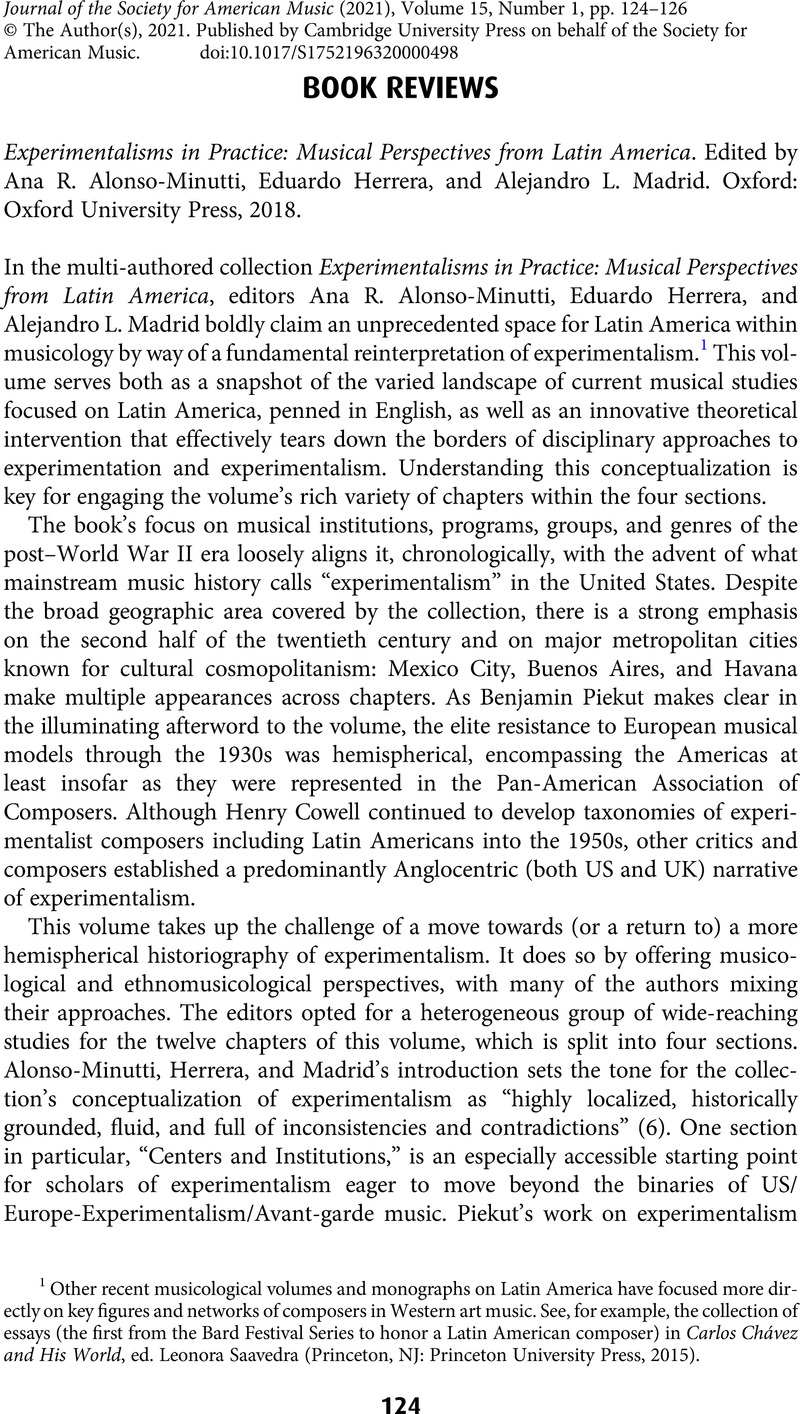No CrossRef data available.
Published online by Cambridge University Press: 23 February 2021

1 Other recent musicological volumes and monographs on Latin America have focused more directly on key figures and networks of composers in Western art music. See, for example, the collection of essays (the first from the Bard Festival Series to honor a Latin American composer) in Carlos Chávez and His World, ed. Leonora Saavedra (Princeton, NJ: Princeton University Press, 2015).
2 The term vanguardia, however, also took on multiple associations within Latin American (and Spanish) artistic movements, with the intelligentsia often situating it in opposition to other, less elite forms of expression. For example, in the case of twentieth century literary production in Ecuador, critics associated with the vanguardia of the 1930s summarily dismissed the contributions of authors they considered costumbristas, who focused on depictions of the local and the everyday (at times providing sharp social critiques), rather than on abstraction. This dichotomous categorization went relatively unquestioned until the 1980s. See Caicedo, Alicia Ortega, “Prólogo: Jorge Icaza y Pablo Palacio y las vanguardias latinoamericanas.” Guaraguao 14, no. 33 (2010): 5–16Google Scholar.
3 In the area of pedagogy, Carol Hess takes a similarly wide view in her textbook Experiencing Latin American Music (Berkeley: University of California Press, 2018).